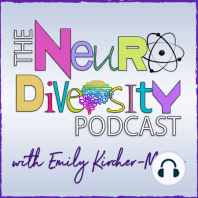37 min listen

Rethinking the Definition of Intelligence | Psychology | IQ | Gifted
Rethinking the Definition of Intelligence | Psychology | IQ | Gifted
ratings:
Length:
34 minutes
Released:
Jan 9, 2019
Format:
Podcast episode
Description
Never afraid to bump up against some of psychology’s doctrines, Scott Barry Kaufman joins us for a discussion about how we evaluate gifted people. We talk about the role of IQ in that evaluation, and he reveals details of his personal journey as told in his book, Ungifted: Intelligence Redefined. About the guest - Scott Barry Kaufman is a Psychologist at Barnard College, Columbia University. Dr. Kaufman embraces a humanistic, integrative approach that takes into account a wide range of human variation – from learning disabilities to intellectual and creative giftedness to introversion to narcissism to twice exceptionality – to help all kinds of minds live a creative, fulfilling, and meaningful life. Scott writes the weekly column Beautiful Minds for Scientific American and hosts The Psychology Podcast. This spring, Scott will teach the course The Science of Living Well at Columbia University. Host Emily Kircher-Morris has dual Masters degrees in Counseling and Education, and specializes in the area of giftedness throughout the lifespan. She founded the non-profit organization The Gifted Support Network, is the owner of Unlimited Potential Counseling & Education Center, and is the mother of three gifted children.
Released:
Jan 9, 2019
Format:
Podcast episode
Titles in the series (100)
The Importance of Empathy | IQ | Bullying | Intelligence | Gifted: Emily Kircher-Morris explores the concept of empathy with Dr. Michele Borba, author of the book “End Peer Cruelty, Build Empathy: The Proven Six Rs of Bullying Prevention That Create Inclusive, Safe, and Caring Schools.” They discuss ways to help... by Neurodiversity Podcast